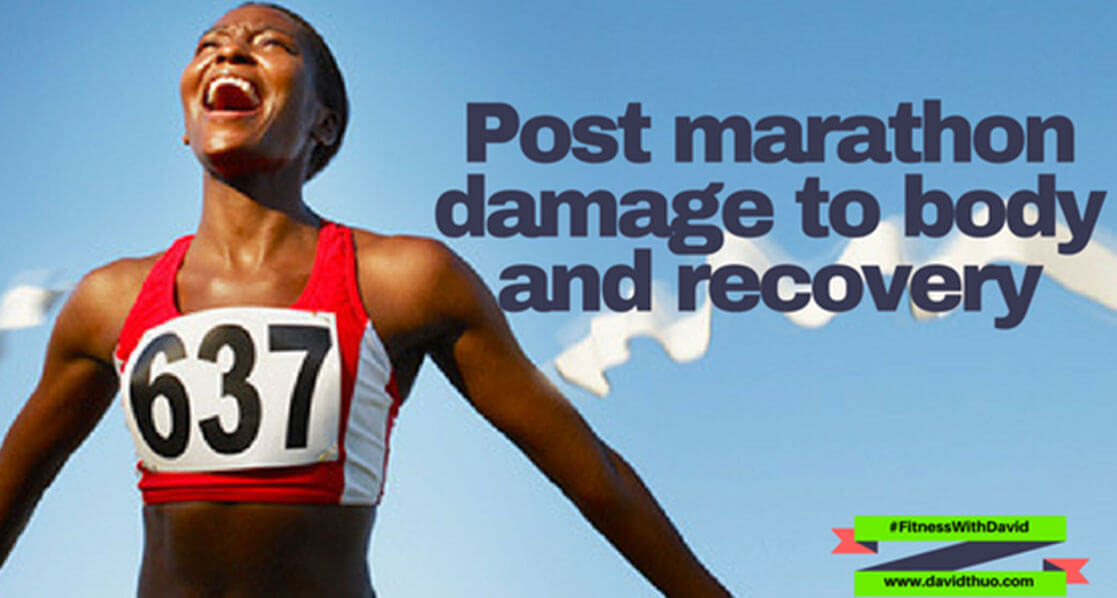


Kick Starting Your Running In The New Year 2018
January 12, 2018


Post marathon: damage to the body and recovery
March 9, 2018

Safety tips and How to avoid injuries
Aside from not running alone, staying inside the gym to use the treadmill and taking constant self-defense classes, it’s important to continue to find ways to keep yourself safe while running. Here are some precautions to take to be safe when running:
- Inform someone when going out for a run and possibly the route you will take.
- Stay on well-lit roads, avoid deserted routes. Don’t take shortcuts through woods, poorly lit area.
- If possible run with a partner. Two people are harder to control than one, so attackers are less likely to strike and if they do, you’ve just doubled your chance of survival. If you don’t have someone to run with, get a dog. Dogs can sometimes sense danger before we can.
- Run against traffic so you can see what’s coming at you and because drivers will more likely see you. This also helps prevent traffic related accidents, especially if you like to run in the early morning or at dusk.
- Wear reflective, bright clothing on both the front and back to make you visible.
- Carry some kind of identification with emergency contacts for when you may need help.
- Switch It Up. Change your running route and the time you run every so often. When we run the same route, or the same two routes, day after day, it not only makes us easy targets for stalkers, we also have a tendency to zone out. Altering your route makes you harder to track and keeps you more alert during your run because you are navigating unfamiliar terrain. The more alert you are, the more likely you are to escape an attack.
Injuries and sport safety frequently seem to go hand-in-hand. However, you should adhere to correct training protocols and take some simple precautions to avoid Injuries at all costs.
- Take five to ten minutes to warm up.
A warm up should prepare your body (and mind) for your main exercise session by:
- Gradually raising the heart rate.
- Warming the muscles and connective tissues.
- Improving mobility and the functionality of all the body’s movements.
The end result is that you will be far less likely to suffer a muscle or tendon strain because your muscles will be warm, loose and ready for your workout.
- Moderate workouts with sufficient periods of rest. Rest is essential to allow your body to recover from the demands of your activity and repair microscopic damage to the muscles and associated tissues that occur during exercise. If you neglect rest, damage will become cumulative, resulting in a weakened body that is more susceptible to injury or illness. Include at least one total rest day in your training schedule each week.
- Listen to your body. Hold off on exercise when you’re sick or feeling very fatigued. Whether you are in the gym or out on a run, it is human instinct to push our bodies to the limit. No pain, no gain! Yes, you need to push yourself hard, but have in the back of your mind the rest of the week’s training. Before, during and after your runs listen to your body and do not ignore what it is telling you. If you worked extra hard in a run and pushed your body hard, reward it by recovering the best way possible. This includes eating good food and getting enough sleep.
- Choose the right gear and shoes for your kind of workout. Modern technology has made significant advances in injury prevention, particularly for footwear. You can now get exercise footwear that is designed specifically for the demands of your chosen sport, so the likelihood of injury is significantly reduced.
Take time out to visit a retailer that specializes in footwear for your sport/exercise Discuss your requirements with them so that they can give you advice on the right shoes for you.
- A good nutrition plan is at the foundation of an effective exercise program, because you have to put back into your body what you take out. If nutrition is neglected, your body will be unable to recover properly from training, which will lead to illness or injury.
Putting focus into your food intake is as valuable as your training, so:
- Eat regular, small meals to fuel your sport and replace energy fast.
- Don’t neglect protein because it is essential for growth and repair.
- Prevent energy ‘lows’ by avoiding long gaps between meals or snacks.
- Focus on ‘clean eating’ by following an unprocessed diet as much as possible.




